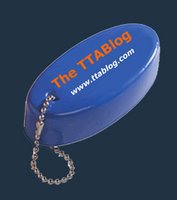TTABlog Test: Which of These Three Genericness Refusals Was/Were Reversed on Appeal?
A genericness refusal is the USPTO's nuclear option and should be employed with caution. Here are three recent appeals from genericness refusals. At least one of them was reversed. How do you think they came out? Answers will be found in the first comment.
In re Big River Steel LLC, Serial No. 90887436 (September 22, 2023) [not precedential] (Opinion by Judge Martha B. Allard). [Requirement for disclaimer of the word STEEL in the mark shown below, for "Steel products, namely, steel sheets and coils. The Examining Attorney accepted applicant's claim of acquired distinctiveness for "U.S. STEEL."]
In re RokFit, Inc., Serial No. 90507392 (September 27, 2023) [not precedential] (Opinion by Judge Mark A. Thurmon) [Refusal to register ATHLETIC STREETWEAR for “Leggings; Shoes; Shorts; Socks; Athletic apparel, namely, shirts, pants, jackets, footwear, hats and caps, athletic uniforms; Athletic shoes; Beanies; Board shorts; Graphic T-shirts; Hoodies; Short-sleeved or long-sleeved t-shirts; Sports bras; Tank tops; Athletic shorts; Gym shorts" on the ground of genericness. "Applicant submitted the absence of results from a dictionary search for'“streetwear' as evidence this term is not generic."]
In re Benjamin & Brothers, LLC d/b/a Reservations.com, Serial Nos. 88396223 (September 26, 2023) [not precedential] (Opinion by Judge Christen M. English) [Refusal to register RESERVATIONS.COM as a trademark for travel agency and motel reservation services. Applicant submitted the results of a survey modeled after the survey in the Booking.com case.]
Read comments and post your comment here.
TTABlog comment: How did you do? BTW: I did not see any mention of the burden of proof standard for genericness. Preponderance? Clear and convincing?
Text Copyright John L. Welch 2023.
















































